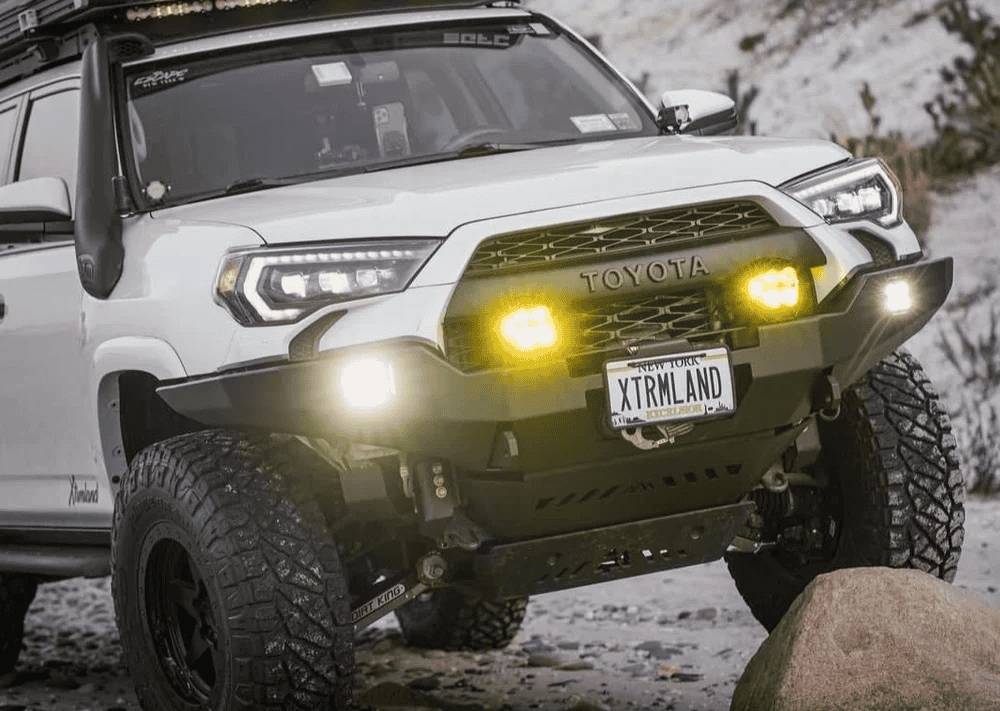Overland Vehicles

Professional overland fabrication is the blend of engineering, craftsmanship, and field wisdom used to build vehicles for demanding travel beyond pavement. Done well, it produces structures and systems that are strong without needless weight, serviceable with common tools, and matched to the vehicle’s ratings. It is not just metalwork. It is a complete approach that considers load paths, thermal expansion, vibration, water ingress, and the realities of dirt and distance. The goal is predictable handling, reliable systems, and components that can handle thousands of miles of corrugations, mud, and mountain passes.
At its core, the work focuses on transferring loads safely into the chassis. A bumper should not only look clean; it must distribute recovery forces into reinforced points, not thin sheet metal. A roof rack is more than a platform; it needs adequate rail spread, triangulation, and drain pathways to avoid trapped water. Skid systems must protect critical components while preserving airflow and service access. Every bracket, gusset, and fastener choice should reflect how the vehicle flexes and twists off road.
The most common structural parts include bumpers, rock sliders, roof or bed racks, tire carriers, underbody armor, and suspension reinforcement. Good designs prioritize approach and departure angles, correct shackle geometry, winch mounting with straight line pulls, and jacking points that actually support weight. Sliders should tie into multiple frame points and resist both downward impacts and side loads from pivot turns. Tire carriers need double shear pivots and bearings sized for dynamic loads, not just static weight.
Material selection drives performance and service life. Mild steel is predictable and friendly to field repairs. Chromoly offers strength when weight is critical but demands careful heat management. Aluminum is ideal for racks and boxes where corrosion resistance and weight savings matter, but it needs thicker sections and proper isolation from dissimilar metals. Stainless resists corrosion in exhaust and wet zones yet must be selected thoughtfully to avoid stress cracking in vibration prone areas.
Welding process matters. MIG is fast and consistent for mild steel structure. TIG shines for thin wall tubing, aluminum, and precision work. Whichever process you use, joint prep, fit up, and heat control are everything. Back purging on stainless, stitch sequencing to control distortion, and testing with both visual inspection and non destructive methods when appropriate separates art from guesswork. Bolted joints have their place too, especially where maintenance or isolation is required. Use high grade hardware, proper torque values, and locking methods suited to vibration.
Electrical and plumbing systems need overland specific thinking. Use abrasion resistant loom, sealed connectors with proper IP ratings, and strain relief at every termination. Route harnesses away from heat and sharp edges, and provide drip loops to discourage water intrusion. High current circuits should include manual service disconnects and clearly labeled fusing. Mount water tanks low and centered, vent them properly, and protect lines with chafe resistant sheathing. Where electronics tie into vehicle networks, respect CAN bus behavior and avoid splices that can corrupt signals.
Coatings and corrosion control are non negotiable. Media blasting, zinc rich primers, and quality powder coat or 2K paint extend life. In coastal or salted environments, cavity wax and fastener antiseize make service possible months or years later. Isolate aluminum from steel with nylon or rubber barriers and use compatible fasteners to prevent galvanic corrosion. Design drainage into every enclosure and leave access for washing mud out after a hard trip.
Numbers will make or break a rig. Start with curb weight, payload, and the gross ratings. Catalogue every component’s mass and location, then consider how it shifts with fuel, water, and cargo. Keep heavy items low and between the axles to protect center of gravity. Preserve suspension geometry by matching spring rates and damping to the final load. Remember that the added weight influences braking, gearing, cooling capacity, and even wheel bearing life.
Approach, breakover, and departure angles must be checked after the build, not just on paper. Tire size affects effective gearing and scrub radius, which can change steering feel. Recovery points should be in line with frame rails, and any hitch mounted recovery must be rated appropriately. Spare packaging should not block cameras or sensors. Finally, documentation matters: torque specs, service intervals, wiring diagrams, and parts lists turn a custom build into a maintainable machine.
A professional build respects legal requirements and safety standards. Lighting must meet beam pattern rules and not overload factory circuits. Fuel system mods should use rated lines and clamps. Propane or other gases need proper ventilation and isolation. If seats or belts are relocated, use certified mounting systems and maintain crashworthy anchorage.
If you want the last mile to feel as good as the first, pair solid engineering with experienced hands that understand dirt roads and daily driving. OZK Customs builds complete overland systems and partial upfits that honor payload numbers, preserve handling, and make service simple. From structure to wiring to coatings, our shop in Fayetteville Arkansas designs around real use, not just curb appeal. Explore our overland rigs to see what a purpose built platform looks like, review the menu of a custom overland upfit, and learn more about our process at why choose OZK. Tell us where you are going, and we will craft the metal, systems, and finish that carry you there.
Ready to turn a concept into a trail proven build? Tell us how you travel, and our team will engineer, fabricate, and install a system that fits your platform and your miles. Start your custom overland project now and get a clear scope, schedule, and budget from OZK Customs.
ADDRESS:
6159 E Huntsville Rd, Fayetteville, AR 72701
PHONE:
(479) 326-9200
EMAIL:
info@ozkvans.com